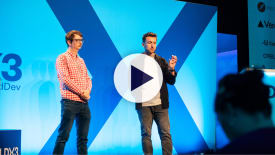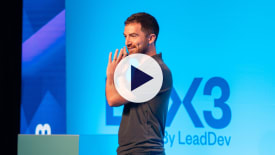Register or log in to access this video
Eppo by Datadog runs a dozen production SDKs to support feature flagging and experimentation at world-scale. More impressive, these SDKs are built and maintained by a small team of three. The key? Treating the SDKs as a platform, not twelve separate codebases. One Rust core holds the logic, thin adapters expose it per language, and a single conformance suite keeps behavior identical everywhere. Staff Engineer Leo Romanovsky will share how this allows them to add new longtail-usage SDKs (think C++ or Elixir) in days, fix a bug once and roll it out across the fleet, and say “yes” faster when supporting sales conversations and RFPs.
Key takeaways
- Core design patterns and how their schema is set up to travel cleanly across SDKs
- Config delivery you can prove: signed artifacts, edge read-through cache, surrogate-key purges, SWR, and OTel metrics (freshness age, purge lag, eval latency) rolled up per POP/org.
- How the engineers power faster go-to-market: a “new SDK” playbook (templates, samples, conformance runner) to spin up the next language quickly
Promoted Partner Content






